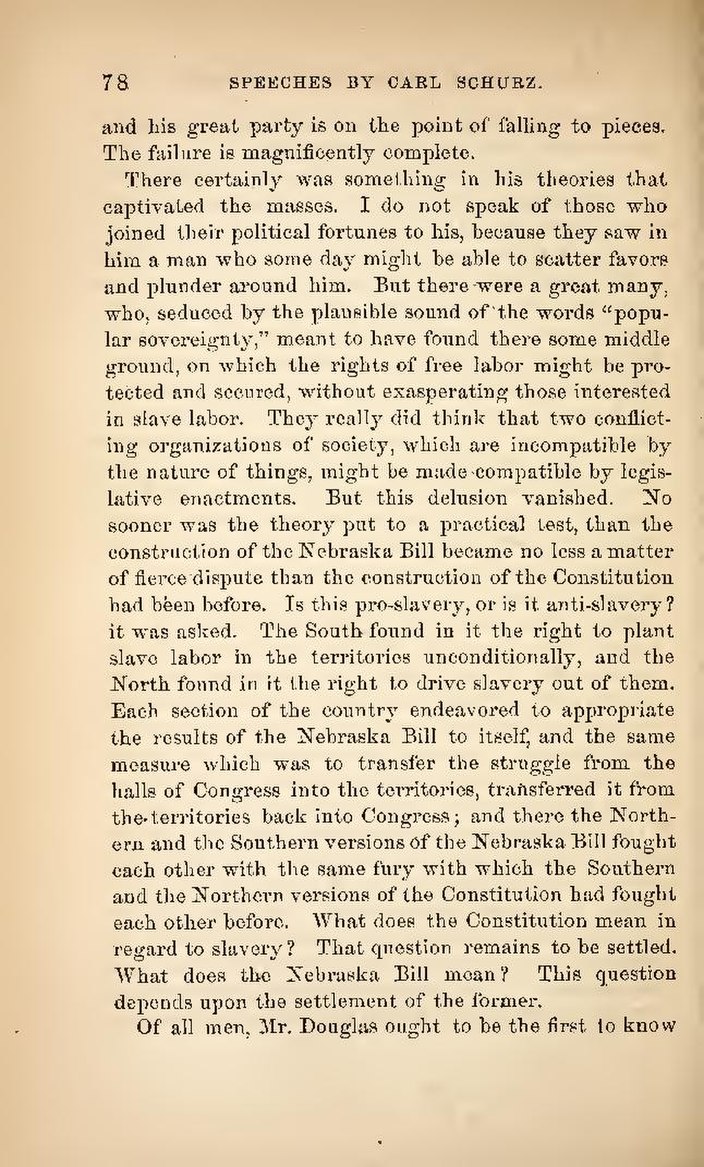and his great party is on the point of falling to pieces. The failure is magnificently complete.
There certainly was something in his theories that captivated the masses. I do not speak of those who joined their political fortunes to his, because they saw in him a man who some day might be able to scatter favors and plunder around him. But there were a great many, who, seduced by the plausible sound of the words “popular sovereignty,” meant to have found there some middle ground, on which the rights of free labor might be protected and secured without exasperating those interested in slave labor. They really did think that two conflicting organizations of society, which are incompatible by the nature of things, might be made compatible by legislative enactments. But this delusion vanished. No sooner was the theory put to a practical test, than the construction of the Nebraska bill became no less a matter of fierce dispute than the construction of the Constitution had been before. Is this pro-slavery, or is it anti-slavery? it was asked. The South found in it the right to plant slave labor in the territories unconditionally, and the North found in it the right to drive slavery out of them. Each section of the country endeavored to appropriate the results of the Nebraska bill to itself, and the same measure, which was to transfer the struggle from the halls of Congress into the territories, transferred it from the territories back into Congress, and there the Northern and Southern versions of the Nebraska Bill fought each other with the same fury with which the Southern and Northern versions of the Constitution had fought each other before. What does the Constitution mean in regard to slavery? That question remains to be settled. What does the Nebraska Bill mean? This question depends upon the settlement of the former.
Of all men, Mr. Douglas ought to be the first to know
